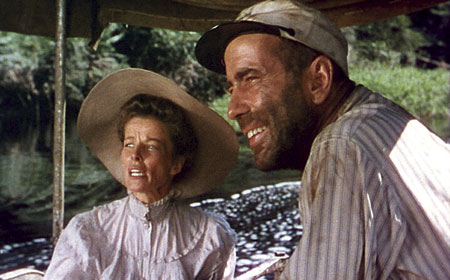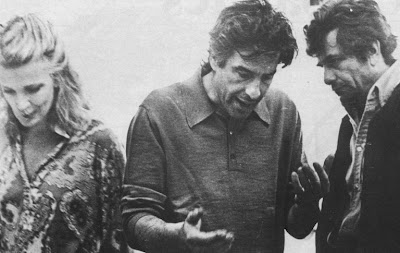Objective Favoritism Presents…Remebering James Agee in Film

James Agee
Kevin Pearson takes a look at the film career of James Agree, which has been potent. A series of reissues mark a flurry of new excitement surrounding Agee’s work. Take it away Kevin.
If you’re a James Agee aficionado like me, the past few months have been exciting. Not only was the original prose for what would later be expanded and molded to become his masterpiece, Let Us Now Praise Famous Men, finally published (entitled Cotton Tenants: Three Families), but so was his unique travel guide, Brooklyn Is: Southeast of the Island. It’s all pleasant and expected news as the writing life of a writer generally extends past their earthly existence. The only sadness is that since Agee died in 1955, these two publications may be the last things able to be unearthed.
I’m haunted by a million thoughts, feelings, and hopes for what kind of artist James Agee could have been. If any writer had a measure of immense talent and potential and failed to live up to either, Agee certainly belongs. He extended himself a million ways through journalism, fiction, non-fiction, and poetry that he could never fully concentrate on one outlet. One of Agee’s main interest and arguably most doomed to fail was his fascination with writing about and making film. Like many novelists and writers at the time, Agee took advantage of the Hollywood boom of the 30s and 40s and banked on jobs which were more guaranteed pay days than almost anything a writer was going to put out (even amongst established novelists at the time). The grudging difference is that unlike most of those writers, Agee dedicated himself to film out of passion.
First, Agee transitioned by doing so in the easiest way. Having committed the bulk of his career to journalism, Agee found himself furiously writing film reviews. At the time, film journalism was an open market. You were likely to see a Fred Astaire/Ginger Rogers dance musical be reviewed by a dance critic or anyone else. More importantly, there wasn’t a ledger guideline in how to format reviews. Agee took heed of this openness and developed a quasi -diary format for his pieces. He didn’t care if he touched every production detail able to be reviewed. The concern of his reviews was the running dialogue and how he mixed a personal experience in watching a film with an objective review. Before Citizen Kane became fodder for academics who rightly understood its historical genre implications, Agee wisely positioned the film as an American take on techniques established in German Expressionism during the 1920s. It’s not the most exhaustive thing to say about the film, but if you’re writing a front-line review and have no literature to help you establish parameters, there is more truth to looking at the film that way than any other. Agee got that essential truth correct.

The African Queen.
The ability to write about film got Agee start admiring certain directors. Most famously, his infatuation for John Huston spanned a number of reviews. In the filmmaker, the writer saw a champion of something more in film, “Huston’s pictures are not acts of …benign enslavement but of liberation, and they require, of anyone who enjoys them, the responsibilities of liberty.” The admiration transitioned into a relationship when the two began to work together. If a chemical reaction was going to lift Agee into moviemaking, it would be through this. While Agee did experiment with a documentary short prior, writing the screenplay for John Huston’s The African Queen was his foray into major motion picture work. The travel adventure, starring Katherine Hepburn and Humphrey Bogart, follows in the vein of realism much like Huston’s previous effort, The Treasure of the Sierra Madre.

Love, my dear? Or hate?
The other major writing feature was The Night of the Hunter which became more famous for Robert Mitchum’s performance than anything. Do I consider these scripts to be major works by Agee? Not necessarily. Both are adaptations of novels and both, for me, had varying successes with two different directors. Being directed by Huston, The African Queen played more into Agee’s attraction to naturalism in writing. If you consider one of the bends of his career in film criticism, there is a heavy dose of him being attracted to films which could extend themselves past genre conveniences. Most notably, he would mockingly write about some films and say only a few paragraphs were necessary to really evaluate their genre stock existence. It’s well known the American genre films were influential for French New Wave cinema, but for Agee, he was a man already pedigreed in other arts related to language and was interested in different ways film could evolve.
Both films were made in the 1950s and Agee’s life exhausted itself by 1955. Whatever promise he would have to transition into film was going to be cut short. Similar to the playwright Bernard Shaw (known now as George Bernard Shaw), interest came too late. During the sunset of his life, Shaw admitted he wished he had the chance to devote himself to film instead of theater. Agee has no formal comment on the subject and his passion may have been too varied and fleeting for him to really comment or know whether or not he would have been all in with film. The other basic problem is both writers grew up in an age that yet had no basis in watching film or movies every day. One of the better comments about why all the New Waves (i.e., young filmmakers revolting against studio norms) happened around 1960s or 70s in numerous countries is that was the first generation of younger people who came of age during heyday of movies in their respective countries and were first able to make films themselves. It was the first generation of people who knew film inside-out and wanted to put their own stamp not only on what changes they were interested in making, but also reflect on what their history with cinema was. Generational difference was difficult for the likes of Agee and Shaw.

These hands have done a lot…
Problem is the story mostly ends there. The legacy of James Agee in film is mostly comprised of an excellent critical career (available in the book, Agee on Film), a few shorts plus two scripts for major features. The task I like to daydream is what kind of filmmaker he would have been if better timing and facilities were available. First, I would have seen Agee extend out of John Huston’s realism. If he had been fortunate enough to come out of the 1960s, John Cassavetes could have been a kindred spirit in comparison. For independent American cinema, Cassavetes saw a documentary-grit approach to storytelling less as a genre choice (opposite of French New Wave) and more of a sightline in how to depict the harshness of American life. Agee also was less interested in plot invention or playing up other fanciful methods to allude to problems in his story and was more about extending out the depths of personal grief in poetic, but densely realistic and harsh ways.
Another consideration is the structural oddities in Agee’s work. The poetry in Let Us Praise Famous Men is a key component. There are also lists of varying elements of daily life about the Cotton tenants in the story. The book has personal story about the people, but backs it up with so much poetry, documented lists, and photography to make it much more of a rounded picture. For this, there has to be European consideration to similar filmmaker traits. Alan Resnais is excellent in making structural works which will get down to the gritty details of life in poetic fashion (Hiroshima, Mon Amour), but considering Agee praised Sergei Eisenstein’s Ivan the Terrible films by calling the first part a “corpse”, Resnais may be too dry. Francesco Rosi has more humanitarian interests in his structural essays while I’m sure Agee could have been excited by Federico Fellini’s later filmmaking flair but also willing be to disregard some of his fancier storytelling ideas. The ideas are endless to what keyholes in filmmakers could have fit.
I imagine most fans of James Agee stick mostly to his criticism. It’s the most fulfilled thing he ever did in film and amongst critics; his work is still standout for a profession that has some excellent voices and thoughts. It’s a depressing though to delve too deep into his script work because the major feeling is how one always is left wanting more. In the existence of time, Agee’s place with film is too short.
Hey there! Do you know if they make any plugins to assist with Search Engine
Optimization? I’m trying to get my blog to rank for some targeted keywords but I’m not seeing
very good success. If you know of any please share.
Many thanks!